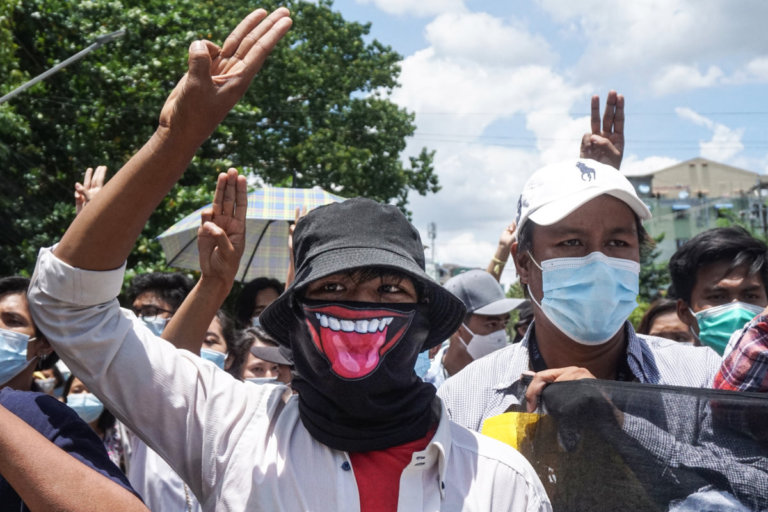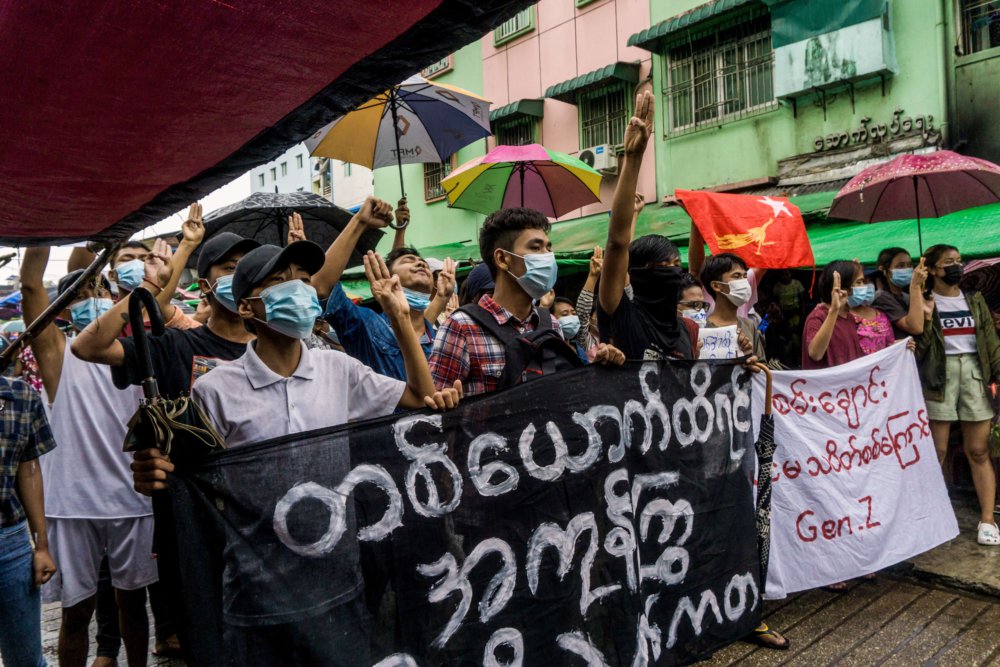
Here’s some welcome news for F-1 visa holders from Myanmar. The US Department of Homeland Security (DHS) has afforded the country Special Student Relief (SSR) designation, effectively easing restrictions for non-immigrants under the student visa. This measure is extended to support Burmese students as the country’s nationwide civil unrest negatively impacts citizens both in and out of the Southeast Asian country.
While you must still apply to obtain an F-1 visa, the DHS has eased certain restrictions for Burmese students facing severe economic hardship on account of the situation back home. IIE Open Doors data suggests that this move will provide relief for 1,828 Burmese students enrolled in US universities in 2019/20. Here’s a quick brief on what to expect, and its implications for F-1 visa holders.

DHS hopes to help ease financial stress from the situation in Myanmar by reducing credit requirement and employment limits for students in the US. Source: STR/AFP
Two major F-1 visa concessions granted
For one, DHS has reduced the number of required credit hours Burmese students have to fulfill every semester. Instead of the usual requirement of 12 credit hours, Burmese students may now pursue a four-year degree by completing six credit hours per semester.
Additionally, the Biden administration has also loosened work restrictions for F-1 visa holders from Myanmar. Students may now work an unlimited number of hours off campus — even in the first year. Plus, any F-1 student authorised to work may complete just three credit hours of online education per semester, allowing them to better support themselves with part-time work.
According to non-partisan think tank Niskanen Centre, nearly 250,000 Burmese citizens have been displaced by the military coup and subsequent turmoil. Analysts project that this could lower the country’s GDP by up to 20% in the coming year, due to bank closures, cash withdrawal interruptions, and sharp price hikes for basic necessities.
With this SSR status, Myanmar joins the likes of Venezuela and Syria, which the US is similarly supporting due to national hardship. Niskanen Centre is calling on the US government to extend the same to Yemen and Ukraine, which have both been embroiled in long-term civil conflict.










